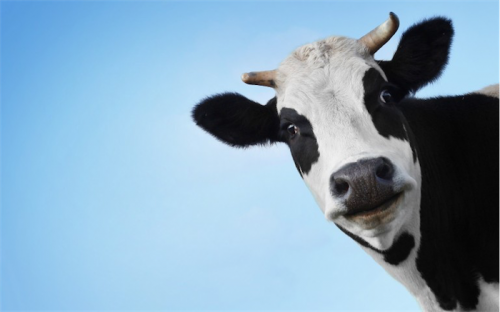 COWS’ milk is a surprisingly contentious topic and choosing which milk to buy or whether or not to drink cows’ milk is a very personal decision. There are a lot of misconceptions and half truths about milk, some of which I’d like to clear up.
COWS’ milk is a surprisingly contentious topic and choosing which milk to buy or whether or not to drink cows’ milk is a very personal decision. There are a lot of misconceptions and half truths about milk, some of which I’d like to clear up.
Whole (full cream) milk is high in fat…

There’s a perception that whole milk is high in fat and calories. The name “full cream” gives that kind of impression.
But when we have a look at the nutritional composition of milk there is only 3.6 grams to 4 grams of fat per 100mL or, as some food advertisers might put it, 96 per cent fat free. When compared to other, more processed dairy products such as cream (35 per cent fat) and cheese (25 per cent fat) whole or “full cream” milk is actually quite low in fat.
So, which milk should you choose? Well, that depends on how much you drink and how active you are. If you are sedentary most of the day and you drink a few milky coffees, swapping to light or skim milk can reduce your calorie intake and every little bit can help with maintaining a healthy weight.
But if you’re active and you don’t drink a lot of milk, there’s no reason to avoid whole milk.
Low fat/skim milk has added sugar…
This is a very common myth that people often read online. This belief has come about because, when you compare the nutrition information of whole milk and skim milk, the quantity of sugar per 100mL is higher in the skim milk.
But there is a simple reason for this. When you take the fat out of whole milk to make skim milk, you take out some of the volume, eg 100mL of whole milk becomes 96mL of skim milk. So, to make up the removed volume, more skim milk is added. This means that because we have taken out the fat, there is more of all the other components of milk.
To further bust this myth, have a look at the ingredients list the next time you pick up a skim milk. The only ingredient is skim milk. There is no added sugar.
?A2 milk is better for you…
There are two main types of protein in milk; whey and casein. Casein protein then has two variations; A1 casein an A2 casein. All milk naturally contains A2 casein protein. Some breeds of dairy cows produce milk that contains whey and A2 casein, but no A1 casein.
There is a small amount of research to suggest that some people may experience fewer gastrointestinal symptoms when consuming milk that contains only the A2 variant of casein. This is the reasoning for having A2 milks available in the supermarket. However, there is no evidence to suggest that A1 casein is bad for your health or that it should be avoided for health reasons.
Coconut, almond, rice and oat “milks” are dietary substitutes for cows’ milk…
People choose not to drink cows’ milk for many different reasons. In the process of avoiding dairy, many plant-based substitutes have been developed. Nut, coconut, oat and rice milks are great vegan alternatives for cows’ milk in recipes and in cooking, but they are not nutritionally equivalent and cannot be complete dietary substitutes for cows’ milk. Plant-based milks have a minimal protein content and they are low in calcium, unless they are fortified with added calcium.
The best substitute for cows’ milk, in terms of nutrition, is a calcium-fortified soy milk. Soy milks contain a higher quality of proteins than other plant milks, which means that they have more essential amino acids.
If you enjoy plant-based milks, that’s great! Just be conscious of meeting your protein and calcium needs from other food sources as well.
Clare Wolski is a practicing dietitian at The Healthy Eating Hub, call 6174 4663. healthyeatinghub.
Who can be trusted?
In a world of spin and confusion, there’s never been a more important time to support independent journalism in Canberra.
If you trust our work online and want to enforce the power of independent voices, I invite you to make a small contribution.
Every dollar of support is invested back into our journalism to help keep citynews.com.au strong and free.
Thank you,
Ian Meikle, editor








Leave a Reply